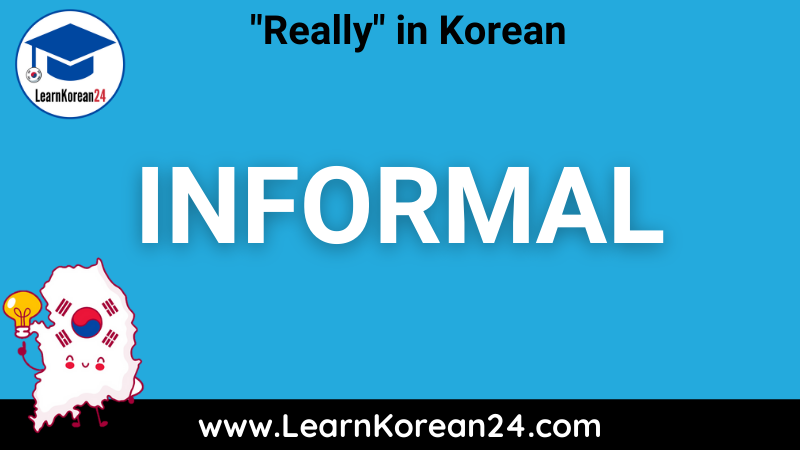what to do in korean informal Okay so slang/informal/casual language. another way to say this here
When it comes to communication, language plays a crucial role in shaping the way we express ourselves. While formal language is often used in professional and business settings, there are times when employing a more casual and informal tone can be appropriate. Understanding the nuances of different language registers can help us effectively connect with others in various contexts.
Okay, so Slang/Informal/Casual Language
 One interesting aspect of language is slang and informal expressions. While these may not be suitable for formal situations, they are frequently used in casual conversations, among friends, and on social media platforms. Using slang helps create a sense of camaraderie and informality. Instead of saying “Hello, how are you?” you might opt for a more relaxed greeting like “Hey, what’s up?”. Embracing slang can make interactions feel more natural and laid-back.
One interesting aspect of language is slang and informal expressions. While these may not be suitable for formal situations, they are frequently used in casual conversations, among friends, and on social media platforms. Using slang helps create a sense of camaraderie and informality. Instead of saying “Hello, how are you?” you might opt for a more relaxed greeting like “Hey, what’s up?”. Embracing slang can make interactions feel more natural and laid-back.
From ‘Very Formal’ to ‘Casual’ Korean Language
 Korean is a language known for its formal speech levels, which are based on the social hierarchy and relationship between speakers. Addressing someone using the appropriate level is crucial, as it demonstrates respect and politeness. For formal occasions or when speaking to someone of higher rank, Koreans use “jondaetmal” (존댓말), the most formal speech level. On the other end of the spectrum, there is “banmal” (반말), the casual speech level. Banmal is used among close friends, family members, or peers of equal status.
Korean is a language known for its formal speech levels, which are based on the social hierarchy and relationship between speakers. Addressing someone using the appropriate level is crucial, as it demonstrates respect and politeness. For formal occasions or when speaking to someone of higher rank, Koreans use “jondaetmal” (존댓말), the most formal speech level. On the other end of the spectrum, there is “banmal” (반말), the casual speech level. Banmal is used among close friends, family members, or peers of equal status.
To strike the right balance during conversations, it is important to gauge the formality desired. In professional settings, it is generally recommended to lean towards the formal end of the spectrum. However, being too formal in casual situations may create a barrier and make it difficult to connect with others emotionally.
Understanding the appropriate speech level is crucial as using the wrong level can lead to misunderstandings or offense. By adapting our language accordingly, we can effectively communicate our thoughts and ideas while considering the social context.
In conclusion, language is a versatile tool that allows us to navigate different social settings. Balancing our speech between formal and casual registers helps us connect with others effectively. So next time you engage in a conversation, be mindful of the appropriate language register and adjust accordingly, whether it’s using slang among friends or employing formalities in professional settings.
If you are searching about Korean Language,#Informal_Formal. কোরিয়ান ভাষার, বেসিক ক্লাস-17 - YouTube you’ve visit to the right page. We have 5 Pics about Korean Language,#Informal_Formal. কোরিয়ান ভাষার, বেসিক ক্লাস-17 - YouTube like Formal and Informal Words in Korean | Korean language, Learn korean, From ‘Very formal’ to ‘Casual’ Korean Language. what do I use ?? - YouTube and also From ‘Very formal’ to ‘Casual’ Korean Language. what do I use ?? - YouTube. Here it is:
Korean Language,#Informal_Formal. কোরিয়ান ভাষার, বেসিক ক্লাস-17 - YouTube
 www.youtube.comOkay So Slang/informal/casual Language. Another Way To Say This Here
www.youtube.comOkay So Slang/informal/casual Language. Another Way To Say This Here
 www.pinterest.comFormal And Informal Words In Korean | Korean Language, Learn Korean
www.pinterest.comFormal And Informal Words In Korean | Korean Language, Learn Korean
 www.pinterest.comformal coreano hangul speak domandhyo idioma slang sentence hyo koreanisches vocabulario vocabulary bahasa formales koreanisch basicas abecedario writing koreanische 에서
www.pinterest.comformal coreano hangul speak domandhyo idioma slang sentence hyo koreanisches vocabulario vocabulary bahasa formales koreanisch basicas abecedario writing koreanische 에서
From ‘Very Formal’ To ‘Casual’ Korean Language. What Do I Use ?? - YouTube
 www.youtube.comLearn How To Say “Really” In Korean - LearnKorean24
www.youtube.comLearn How To Say “Really” In Korean - LearnKorean24
 learnkorean24.comFormal and informal words in korean. Learn how to say “really” in korean. Korean language,#informal_formal. কোরিয়ান ভাষার, বেসিক ক্লাস-17
learnkorean24.comFormal and informal words in korean. Learn how to say “really” in korean. Korean language,#informal_formal. কোরিয়ান ভাষার, বেসিক ক্লাস-17